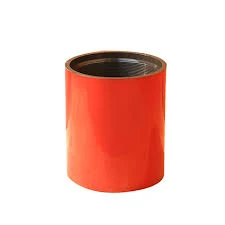- Afrikaans
- Albanian
- Amharic
- Arabic
- Armenian
- Azerbaijani
- Basque
- Belarusian
- Bengali
- Bosnian
- Bulgarian
- Catalan
- Cebuano
- Corsican
- Croatian
- Czech
- Danish
- Dutch
- English
- Esperanto
- Estonian
- Finnish
- French
- Frisian
- Galician
- Georgian
- German
- Greek
- Gujarati
- Haitian Creole
- hausa
- hawaiian
- Hebrew
- Hindi
- Miao
- Hungarian
- Icelandic
- igbo
- Indonesian
- irish
- Italian
- Japanese
- Javanese
- Kannada
- kazakh
- Khmer
- Rwandese
- Korean
- Kurdish
- Kyrgyz
- Lao
- Latin
- Latvian
- Lithuanian
- Luxembourgish
- Macedonian
- Malgashi
- Malay
- Malayalam
- Maltese
- Maori
- Marathi
- Mongolian
- Myanmar
- Nepali
- Norwegian
- Norwegian
- Occitan
- Pashto
- Persian
- Polish
- Portuguese
- Punjabi
- Romanian
- Russian
- Samoan
- Scottish Gaelic
- Serbian
- Sesotho
- Shona
- Sindhi
- Sinhala
- Slovak
- Slovenian
- Somali
- Spanish
- Sundanese
- Swahili
- Swedish
- Tagalog
- Tajik
- Tamil
- Tatar
- Telugu
- Thai
- Turkish
- Turkmen
- Ukrainian
- Urdu
- Uighur
- Uzbek
- Vietnamese
- Welsh
- Bantu
- Yiddish
- Yoruba
- Zulu
Exploring the Benefits and Applications of Teflon Couplings in Various Industries and Technologies
Understanding Teflon Coupling Applications, Advantages, and Considerations
Teflon coupling, derived from the well-known brand name for polytetrafluoroethylene (PTFE), is widely recognized for its unique properties that make it an ideal material for various coupling applications. This coupling mechanism is critical in industries ranging from chemical processing to pharmaceuticals and food manufacturing. In this article, we explore the characteristics, benefits, applications, and considerations surrounding Teflon coupling.
Characteristics of Teflon Coupling
Teflon is a high-performance plastic known for its exceptional chemical resistance, high-temperature tolerance, and low friction properties. These characteristics stem from its molecular structure, which is highly resistant to reactive chemicals and extreme conditions. When applied to coupling, this means that Teflon can effectively connect components without compromising on integrity, durability, or chemical compatibility.
Teflon couplings can generally function in a wide temperature range, often from -200°C to +260°C. This extreme temperature tolerance allows for versatility in applications that involve harsh environmental conditions. Additionally, Teflon's friction-reducing properties enable smooth motion and prevent wear-and-tear during operation.
Advantages of Teflon Coupling
There are several key advantages to using Teflon couplings. Firstly, their exceptional resistance to chemicals makes them suitable for use in environments where traditional metals or plastics would corrode or degrade. In the chemical processing industry, for example, Teflon couplings can facilitate the safe transportation of aggressive substances without the risk of material deterioration.
Secondly, Teflon couplings exhibit minimal adhesion to other materials. This quality prevents substances from sticking to the coupling surfaces, reducing the likelihood of contamination—a crucial factor in industries like food processing and pharmaceuticals.
Furthermore, Teflon is known for its excellent electrical insulation properties, making Teflon couplings a preferred choice in applications that require non-conductive materials. Their ability to resist buildup of static electricity serves to enhance safety in sensitive environments.
Applications of Teflon Coupling
teflon coupling

The application of Teflon couplings spans multiple sectors. In the chemical industry, they are commonly used in pipelines and fittings for transferring corrosive chemicals. Their durability ensures a long lifespan with minimal maintenance.
In the pharmaceutical sector, Teflon couplings play an essential role in manufacturing processes where contamination is a significant concern. These couplings not only maintain the integrity of the products but also comply with stringent health regulations.
Moreover, Teflon couplings are utilized in food processing equipment. Given their ability to withstand rinsing and cleaning processes without degradation, they help ensure food safety and compliance with health standards.
Considerations When Using Teflon Coupling
While Teflon couplings offer numerous benefits, there are considerations to keep in mind during their application. Cost can be a factor—Teflon is often more expensive than traditional coupling materials, which can affect budget considerations for large-scale projects.
Installation practices are also crucial; improper installation can lead to leakage or failure. It is essential to follow manufacturer guidelines and ensure that qualified personnel handle the installation process.
Furthermore, while Teflon is resistant to many chemicals, there are a few exceptions. Users should always consult compatibility charts to ensure that the specific chemical substances interact safely with Teflon.
Conclusion
In conclusion, Teflon coupling emerges as an indispensable component in various industries, renowned for its chemical resistance, durability, and low friction properties. From chemical processing to food safety, its applications are vast and critical. However, as with any material, understanding its limitations and installation requirements is key to maximizing its potential. As industries continue to evolve and demand higher performance materials, Teflon couplings are likely to remain at the forefront of innovative coupling solutions.
-
Well Casing Extension Couplings – Applications and InstallationNewsJun.06,2025
-
Types of Crossover Subs in Drilling & CompletionNewsJun.06,2025
-
Key Features of High-Quality Tubing Pup JointsNewsJun.06,2025
-
Installation and Maintenance Tips for Steel Couplings for PipeNewsJun.06,2025
-
How to Select the Right Pup Joint for Oil & Gas OperationsNewsJun.06,2025
-
Applications of Stainless Steel Pipe CouplingsNewsJun.06,2025







